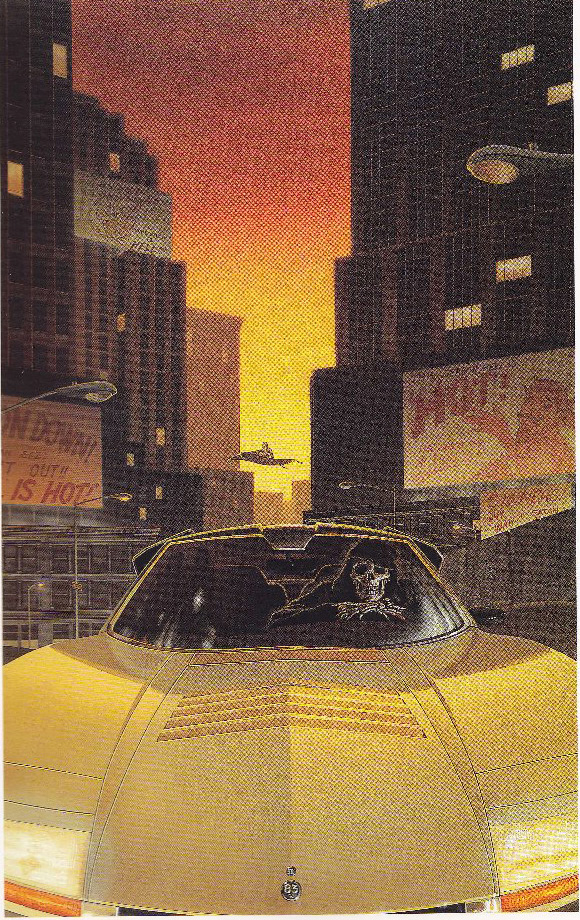Piers Anthony has spent nearly SIX DECADES doing the one thing I want most to do – creating worlds and stories and characters that captivate readers.
I’ve had the pleasure of exploring a number of those worlds having read several books from the Xanth series, as well as each of the books in the Incarnations of Immortality series which includes my favorite novel by Anthony (one of my all-time favorite novels): On a Pale Horse.
Just reading the back cover intrigued me: “Shooting Death was a mistake, as Zane soon discovered. For the man who killed the Incarnation of Death was immediately forced to assume the vacant position! Thereafter, he must speed over the world, riding his pale horse, and ending the lives of others.”
Add to that premise (for a novel, it should be noted, that came out thirty years ago), a great voice, interesting (and at times diabolical) characters, and I was hooked.
Sure, the personification of immortal entities (like the Furies, the Fates, Death, and so on) has been part of storytelling for a couple millennia (from ancient myths to TV shows like Reaper and Supernatural), yet Anthony’s series felt fresh and fun.
In some ways the Incarnations of Immortality series seems to be a precursor to the Percy Jackson books (The Lightning Thief . . .) that have been popular the past few years.
On a Pale Horse starts right out of the gates with Zane facing some pretty serious value conflicts: like whether or not he’s going to take his own life (which he decides to fight for at the last moment only to shoot Death and, ironically, end his own life/identity in the process). Anthony masterfully uses several instances of irony as a way of adding to the tension. Throw in the sinister plot that ensnared Zane in the first place and you’ve got a delightfully engaging plot.
It’s pretty safe to say, I was quite excited when Piers Anthony (who, according to at least one source, published 140 works from 1956-2009) agreed to write a special guest post for Write Side Up.
Below is Anthony’s response to the question What Are Your Writing For?
 What am I writing for?
What am I writing for?
by Piers Anthony
There is more than one way to answer this question, two prospects being the standard one and the real one. Both apply to me.
When I was in college and had to decide on my major, I pondered a day and a night and realized that I wanted to be a writer. It was like a light turning on, and it has guided me ever since. I majored in creative writing, and later became a professional writer, and I never want to change. When I die, I expect to be halfway through the creation of a phenomenal and thoughtful novel.
I write for income, for posterity, for the world, and for myself. Any writer does, and that’s fine. But it’s actually superficial, so now let’s get real.
There is a theory that it takes a bad childhood, or at least a happy childhood interrupted for several years by badness, to generate an enduring urge to write. That the real reason people choose to write is to find fulfillment in published imagination, regardless of their stated reasons. Is that true? I believe it is for many, maybe most, maybe all writers who stay with it. Am I an exception? Hell no!
In a nutshell, my happy world ended when I was four, when two relative strangers who turned out to be my parents took me from England to Spain, and I lost my emotional mother figure, who was the nanny. I was not mistreated, merely put with new figures in a new country. Then we moved to America, another new country, and my parents separated and divorced so I never developed a lasting sense of family.
When I was about twelve I assessed my situation rationally, and concluded that if I had it to do over again, I would prefer never to have lived. I wasn’t suicidal, merely miserable, though I did think about death a lot. Later things changed, as I grew up, graduated from college, married, and finally became highly successful as a writer; today in my old age I am satisfied with my life as a whole. I resolved long ago to live my life in such manner that when at last I had to lay it down, I would not be ashamed. I’m doing it.
But that awful void in my emotional childhood remains, powering my urge to create the better worlds of imagination. It has been called the gift that keeps giving, and I suspect that there is a similar void in any effective writer.
I still feel most truly alive when I’m in a scene that I am writing. I love it when my readers say they are in the scene too.
Now that I’m established as a writer, I am able to put my concerns online, as I do in my monthly HiPiers column at my website. I am concerned about the state of the world. I have this ugly vision of maggots consuming a carcass. When it is gone they mature into flies and move on. But when human maggots consume the world, converting its resources to garbage, where will they go? How can I write for posterity, if there is no posterity, thanks to the devastation our species has wrought? Can new ways of thinking encourage us to change course while there is yet time?
I explored five patterns of thinking in my novel of Death, On A Pale Horse, as I recall, exemplified by five matchsticks in different arrangements: linear, parallel, circular, radiating, and intuitive. Will that help, or will we remain in the same rut of not thinking at all outside our immediate convenient boxes? So I see myself as a missionary, in a manner, trying to use my storytelling to awaken folk from their disastrous slumber.
So what am I writing for? The whole shebang, ultimately, including you. Are you in my scene?
